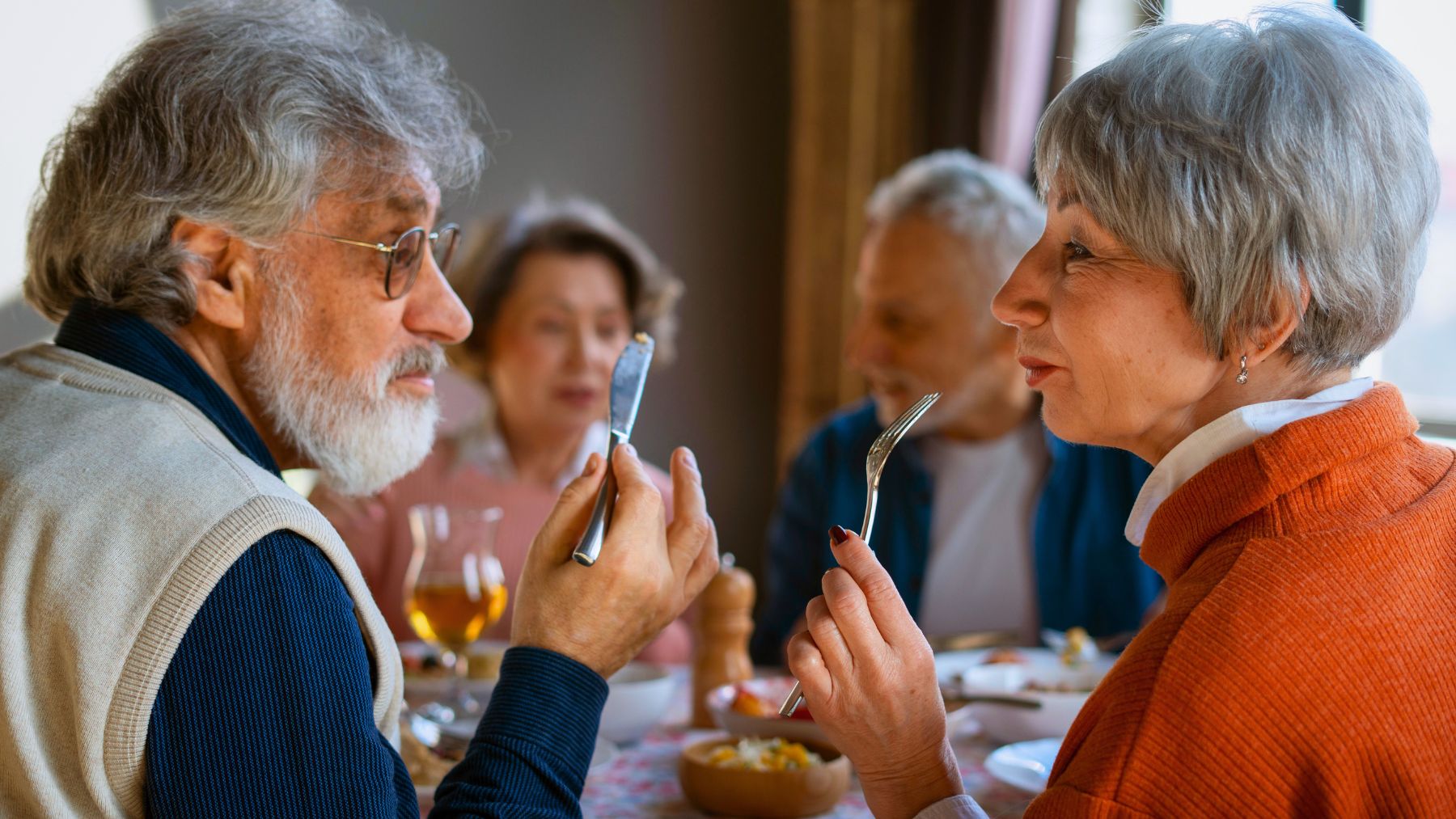Rather than aiming for rigid schedules or a specific time, the ideal dinner for retirees centers on the interval before bedtime. Experts recommend completing your evening meal at least three hours before going to sleep.
This schedule aligns with circadian biology, promoting restorative sleep, balanced melatonin secretion, and stable glucose metabolism. Here, we’ll examine why maintaining a three-hour fasting window before bedtime is the healthiest option for older adults. We’ll integrate findings from experts such as Valter Longo, director of USC’s Longevity Institute.
3 hours before bedtime: the importance of dinner timing after 65
Our physiology follows a 24-hour circadian rhythm regulated by the suprachiasmatic nucleus, which acts as the brain’s master clock. Late meals clash with this internal clock, sending mixed cues to our metabolic and neural networks. “If you push your dinner later and later, the message to your system is that you should still be active”, says Longo. That misalignment can interfere with the body’s natural transition into sleep.
For seniors, accelerating gastrointestinal processing before lights out is especially beneficial since basal metabolic rate and gastric emptying slow over time. Concluding dinner three hours before sleep grants the enteric nervous system time to break down nutrients, reducing acid reflux and dyspepsia. This interval also smooths nocturnal glycemic fluctuations, supporting healthy insulin and glucagon balance.
This window also lengthens the overnight fast, enabling a more robust catabolic phase that promotes lipolysis and autophagy. A prolonged post-absorptive state assists in weight management and mitochondrial efficiency, which is linked to improved metabolic health and potentially healthier aging.
More healthy eating habits for retirees over 65
Beyond timing, what and how much you eat in the evening play a big role. Centenarians often share a key habit: a light dinner eaten relatively early. Here’s how to make your evenings healthier:
- Embrace the light supper: Opt for a modest, nutrient-dense meal rich in omega-3 sources (such as salmon or mackerel), lean proteins like grilled chicken, colorful cruciferous and leafy vegetables, and monounsaturated fats from olive oil or avocado. Limit starchy carbohydrates and saturated fats to reduce postprandial glycemic load and inflammation.
- Consider a gentle fast: When appropriate, conclude dinner early enough to achieve a 12- to 14-hour fasting window between your last bite and breakfast. This can improve metabolic flexibility and sirtuin activation. Introduce it gradually by wrapping up dinner by 7 pm and waiting until 7 am for your first meal.
- Prioritize protein: After resistance training or aerobic exercise, ensure your dinner includes sufficient high-quality protein to support muscle protein synthesis and counteract sarcopenia.
- Skip the late-night snacks: Avoid grazing in front of the television, where chips, sweets, and alcohol can sabotage your caloric balance, elevate triglycerides, and disrupt sleep.
- Listen to your body: Don’t worry if an occasional heavier meal is unavoidable. Balance it by choosing low-glycemic-index foods at breakfast or lunch to stabilize blood sugar and allow your digestive system to recalibrate.
Longo underscores the importance of a consistent 12-hour eating window and safeguarding that evening fasting period. However, if insomnia or elevated cholesterol, triglycerides, or inflammatory markers arise, redistributing calories—a substantial breakfast and lunch with a lighter dinner—can bring good results. Make sure to check in with your doctor if you have any concerns about your dinner schedule.
